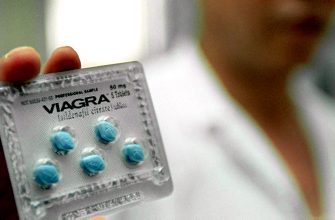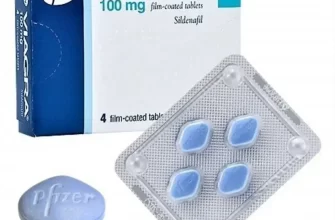For safe and reliable access to generic Viagra, consider licensed online pharmacies verified by LegitScript or similar reputable certification bodies. These pharmacies adhere to strict regulations, ensuring the authenticity and quality of their medications.
Always prioritize pharmacies with transparent pricing and detailed information about their products and shipping procedures. Look for those with customer reviews and readily available contact information. Avoid sites offering suspiciously low prices or lacking necessary certifications; these often carry considerable risks.
Before placing an order, carefully review the pharmacy’s return policy and customer service protocols. A robust return policy reflects a commitment to customer satisfaction and confidence in their product. Confirm their licensed address and contact information for easy access to support if needed. Secure payment gateways are also crucial for a secure transaction.
Remember to consult your doctor before using any medication, including generic Viagra. They can assess your health status and determine the appropriate dosage and potential interactions with other medications you might be taking. Your doctor’s guidance is key to safe and effective treatment.
- Where to Buy Real Generic Viagra
- Understanding Generic Viagra
- Generic Viagra: Quality and Safety
- Choosing a Reputable Supplier
- Identifying Reputable Online Pharmacies
- Secure Payment Methods
- Verifying Pharmacy Licenses and Certifications
- Checking for Secure Payment Gateways
- Verifying Payment Processor Reputation
- Recognizing Secure Payment Page Features
- Understanding Data Encryption
- Reporting Suspicious Activity
- Assessing Customer Reviews and Testimonials
- Understanding Potential Risks of Counterfeit Medications
- Comparing Prices and Finding the Best Value
- Protecting Your Privacy and Data Security
Where to Buy Real Generic Viagra
Start with your doctor. A consultation helps determine if Viagra is right for you and allows for monitoring of potential side effects. They can also provide a prescription, saving you time and ensuring medication safety.
Next, explore reputable online pharmacies. Verify their legitimacy by checking for accreditation from organizations like the Pharmacy Checker Verification Program or similar bodies. Look for pharmacies with licensed pharmacists and secure payment gateways (HTTPS). Read reviews from verified customers – pay close attention to details about delivery and customer service.
Consider using telehealth platforms. Many legitimate online platforms offer doctor consultations and prescription delivery. This streamlines the process, offering convenience and potentially lower costs than traditional brick-and-mortar pharmacies. Always confirm the doctor’s licensing and the platform’s security measures.
Caution: Avoid websites promising unbelievably low prices or requiring no prescription. These sites often sell counterfeit medication, posing significant health risks. Prioritize your health and safety by choosing reliable sources.
Remember: Generic Viagra should only be obtained with a valid prescription from a licensed medical professional. Never self-medicate. If you have questions or concerns, consult your doctor before purchasing or using any medication.
Understanding Generic Viagra
Generic Viagra contains the same active ingredient, sildenafil citrate, as brand-name Viagra. This means it offers the same effectiveness in treating erectile dysfunction. The key difference lies in the price; generics are significantly cheaper because they aren’t subject to the same patent protection.
Generic Viagra: Quality and Safety
Generic manufacturers must meet stringent regulatory standards to ensure their products are both safe and effective. The FDA in the US, for example, rigorously tests generic drugs before approving them. This rigorous testing guarantees a product matching the brand-name counterpart in terms of quality and potency. You can confidently use generic Viagra, knowing it undergoes the same quality checks.
Choosing a Reputable Supplier
Buying medication online requires careful attention to the supplier’s legitimacy. Look for pharmacies that are licensed and regulated, and which clearly display their contact details. Avoid sources that lack transparency or request personal information beyond what’s needed for order processing. Always verify the website’s security before entering sensitive details. Prioritize licensed online pharmacies for a safe purchasing experience.
Identifying Reputable Online Pharmacies
Check for a valid license and registration. Legitimate online pharmacies display their license information prominently, often linking to official regulatory bodies. Verify this information independently. Look for pharmacies registered with bodies like the Pharmacy Checker Verification Program or similar organizations in your country.
Secure Payment Methods
Reputable pharmacies use secure payment gateways like SSL encryption (look for the padlock symbol in the URL bar) to protect your financial data. Avoid sites accepting only wire transfers or Bitcoin, as these methods offer less protection.
Scrutinize the pharmacy’s contact information. A physical address and a working phone number are key indicators of legitimacy. Avoid pharmacies offering only email contact.
Read customer reviews and testimonials carefully. Independent review sites provide valuable insights. Be wary of overwhelmingly positive reviews, as these could be fake. Look for a mix of experiences and responses from the pharmacy to negative feedback.
Examine the pharmacy’s privacy policy. A clear and concise privacy policy outlining how your personal data is collected, used, and protected is crucial. Avoid pharmacies with vague or nonexistent privacy policies.
Consult your doctor before purchasing medication online. They can offer guidance on safe sourcing practices and potential drug interactions. They can help verify the validity of any online pharmacy you might consider using.
Verifying Pharmacy Licenses and Certifications
Check the pharmacy’s website for licensing information. Look for clearly displayed license numbers and state registration details.
- Verify the license number with your state’s board of pharmacy. Most state boards have online databases for easy verification. Use the official website, not a third-party site.
- Confirm the pharmacy’s physical address matches the one listed on their website and license. This helps avoid fraudulent operations.
- Scrutinize the listed certifications. Look for affiliations with recognized pharmacy organizations like the National Association of Boards of Pharmacy (NABP).
Contact the pharmacy directly. Ask for their license number and other relevant certification details. A legitimate pharmacy will readily provide this information.
- Check for secure website protocols (HTTPS). A secure connection indicates that the pharmacy takes security seriously.
- Look for a physical address and contact phone number. Legitimate pharmacies have established business locations and are contactable via phone.
- Read customer reviews from reputable sources. While not foolproof, consistent negative feedback might indicate problems.
Utilize the NABP’s online tools. The NABP offers resources to verify pharmacy licenses across jurisdictions. Their website is a reliable source for confirming pharmacy legitimacy.
Checking for Secure Payment Gateways
Look for the padlock icon in your browser’s address bar. This indicates a secure HTTPS connection, encrypting your data.
Verifying Payment Processor Reputation
- Check for well-known processors like PayPal, Stripe, or similar trusted names. These companies have established security protocols.
- Research the processor independently. Use a search engine to check for reviews and any security breaches.
- Avoid sites using obscure or unknown payment gateways. This is a major red flag.
Examine the website’s “About Us” section for contact information. Legitimate businesses openly share their details.
Recognizing Secure Payment Page Features
- The URL of the payment page should start with “https”.
- Look for a visual indication of encryption, like the padlock or a green address bar.
- The site should clearly display the payment processor’s logo, confirming its use.
Never enter your payment information on a site that lacks these security features. Proceed with caution, and if anything feels off, don’t hesitate to exit the site.
Understanding Data Encryption
Ensure the site uses strong encryption – 256-bit SSL encryption is the current gold standard. This high level of encryption makes it extremely difficult for hackers to intercept your payment details.
Reporting Suspicious Activity
If you suspect a website is using fraudulent payment methods, report it to the relevant authorities. Your vigilance helps protect other users.
Assessing Customer Reviews and Testimonials
Prioritize reviews from multiple sources. Check platforms like Trustpilot, independent health forums, and even social media groups for a broader perspective. Look for consistent themes in the feedback.
Focus on specifics. Instead of vague praise, search for comments detailing specific aspects of the service, like shipping speed, product quality, or customer support responsiveness. Read reviews mentioning both positive and negative experiences; balanced feedback offers a more realistic view.
Scrutinize review dates. Recent reviews are more relevant to current service quality. Older reviews can still provide context, but their relevance may be diminished. Note any significant changes in customer sentiment over time.
Consider the review’s length and detail. Longer, detailed reviews often provide more insightful information than short, superficial ones. Pay attention to reviewers who provide specific examples and articulate their experiences clearly.
Be wary of suspiciously perfect reviews. An overwhelming number of five-star reviews with little to no criticism can be a red flag. Such reviews may be fake or manipulated.
Assess the overall pattern. Analyze the volume and distribution of reviews across different rating levels. A healthy mix of positive and negative reviews is more believable than a skewed distribution. Pay attention to the nature of negative comments; recurring complaints about a specific aspect warrant closer scrutiny.
Understanding Potential Risks of Counterfeit Medications
Buying medication from unreliable sources carries significant health risks. Counterfeit Viagra, for instance, may contain incorrect dosages of the active ingredient sildenafil, or none at all. This can lead to ineffective treatment and potential health complications.
Incorrect Dosage: Too little sildenafil won’t treat erectile dysfunction, while too much can cause dangerous side effects, including dangerously low blood pressure and vision problems. Some studies show counterfeit pills containing far more or less sildenafil than advertised.
Harmful Additives: Counterfeit drugs often include unlisted ingredients. These can range from inert substances to toxic chemicals, causing allergic reactions, organ damage, or even death. Reports document cases involving heavy metals and other dangerous contaminants.
Lack of Quality Control: Legitimate manufacturers maintain strict quality standards. Counterfeiters lack such controls, meaning the purity and consistency of the medication are completely unreliable.
Legal Ramifications: Purchasing counterfeit medications is illegal in many countries and can result in significant fines or other legal penalties.
Protect your health. Purchase medications only from licensed pharmacies or reputable online distributors. Always verify the legitimacy of the seller before making a purchase. Confirm the presence of a physical address and contact information. Never compromise your health for a lower price.
Comparing Prices and Finding the Best Value
Check multiple online pharmacies. Compare prices per pill, not just total cost. Discounts often apply to larger orders.
Look for licensed pharmacies with verified customer reviews. Independent review sites, not those on the pharmacy’s own website, provide the most reliable feedback. Pay close attention to shipping costs and delivery times–these can significantly impact the final price.
Consider using a pharmacy price comparison website. Many websites aggregate prices from various online pharmacies, simplifying your search. Be cautious, however; always double-check the pharmacy’s legitimacy independently.
Read the pharmacy’s return policy. Understand their procedures for handling damaged or incorrect shipments or medication that does not meet your needs. A transparent and customer-friendly return policy indicates a reputable business.
Prioritize security. Ensure the pharmacy uses secure payment gateways (look for “https” in the URL and a padlock icon). Protect your personal and financial information by dealing only with verified and trustworthy sources.
Remember, the cheapest option isn’t always the best. Prioritize safety and reliability over minimal savings. A slightly higher price can be worth it for peace of mind and guaranteed quality.
Protecting Your Privacy and Data Security
Always use secure websites with HTTPS. Look for the padlock icon in your browser’s address bar.
Never share your personal information unless absolutely necessary. Online pharmacies should only require the minimum information for processing your order.
Check the website’s privacy policy. A reputable pharmacy will clearly outline how they handle your data. Review their data protection practices carefully before providing any information.
Use strong, unique passwords. Avoid using the same password across multiple websites. A password manager can help you generate and securely store strong passwords.
| Security Measure | Explanation |
|---|---|
| Secure Payment Gateways | Ensure the pharmacy uses reputable payment processors like PayPal or Stripe, which offer encryption and fraud protection. |
| Data Encryption | Confirm that the pharmacy uses encryption (like SSL/TLS) to protect your data during transmission. |
| Privacy Policy Transparency | A detailed privacy policy should clearly explain data collection, usage, and storage practices. |
Be wary of suspicious emails or communications. Legitimate pharmacies rarely solicit business through unsolicited emails.
Report any suspicious activity immediately. Contact your bank or credit card company if you suspect fraudulent activity. Also, report any security breaches to the pharmacy’s customer support.
Consider using a VPN. A virtual private network (VPN) encrypts your internet traffic, adding an extra layer of security, especially when using public Wi-Fi.






